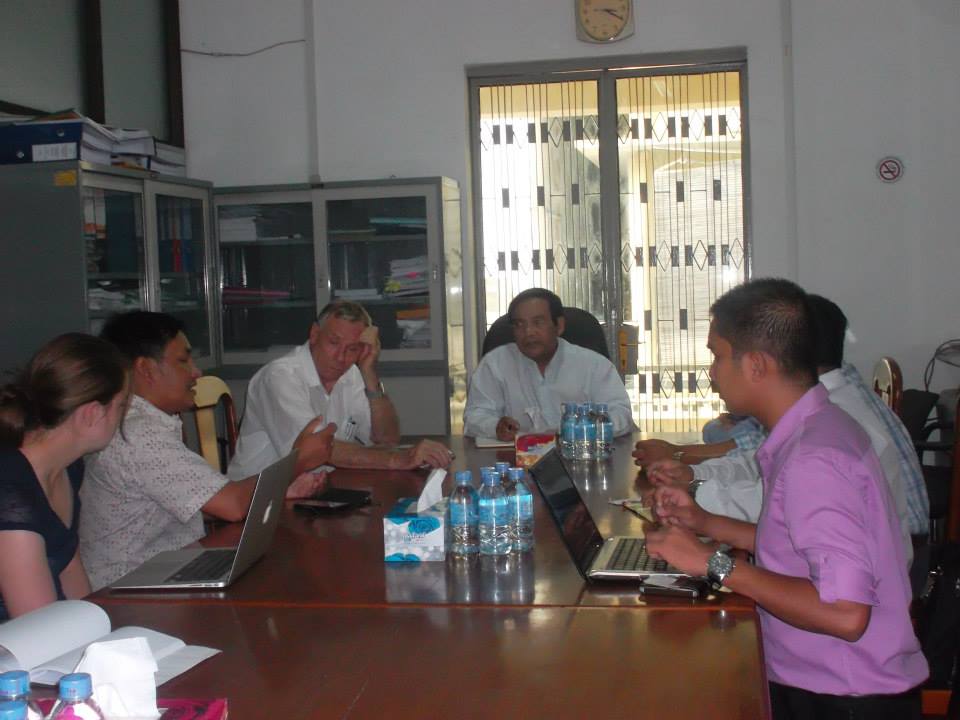The Khmer Institute for National Development (KIND), in partnership with the Affiliated Network for Social Accountability in East Asia and the Pacific (ANSA-EAP) Foundation, conducted multi – stakeholder consultations from February 17, 2014 to March 10, 2014 in Cambodia as part of the Cross Country Learning Exchange Program of the monitoring project, Checkmyschool (CMS).
Originally piloted as a joint undertaking between the Philippine Government’s Department of Education and ANSA-EAP, CMS now focused on knowledge sharing and scaling up in the EAP region. Thanks to KIND’s and its partners’ work, Cambodia presented a good opportunity for expansion as social accountability (SAc) tools and projects have started gaining traction in the country.
“Constructive engagement with the government could certainly help in education reform initiatives in Cambodia”, quipped Mr. San Chey and Mr. Rithy Seng of KIND, when asked about the project in radio interviews last March 12. This and citizen’s monitoring of public services are the key components of SAc.
KIND gathered students, teachers, parents, school representatives, non-government organizations (NGOs), and members of the local governments to listen to learnings from the Philippines and to explore how such an initiative could be replicated in their country.
Representatives from CMS Philippines, Paul Villanueva and Jecel Censoro, joined some of the dialogues to impart their experience in conducting the monitoring project. They talked about the education sector’s situation in the Philippines and some success stories that could serve as inspiration to their Cambodian counterparts.
Participants noted that the CMS approach was applicable in Cambodia and they looked forward to an intervention such as this one to bridge the gap between information, technology, and people participation in education governance.
In particular, the consultations revealed that CMS could help improve public education services delivery in the Cambodia in three ways: first, by monitoring issues on corruption, shortage/lack of textbooks, and lack of provisions for electricity and toilets in schools; second, by assisting stakeholders access education data from the government that could help in monitoring activities; and third and most important of all, by providing an effective feedback system that could enable quick and programmatic response from the government to resolve issues on the ground.
This way, communities could really partake in efforts aiming to improve the quality of education in Cambodia. They could share their observations and report the same to the Ministry of Education for immediate action.
At present, KIND is preparing to implement CMS in Phnom Penh, Takeo, Svay Rieng and Kampong Chama with technical assistance from ANSA-EAP. Open Society Foundation supports the CMS Pilot in Cambodia.

